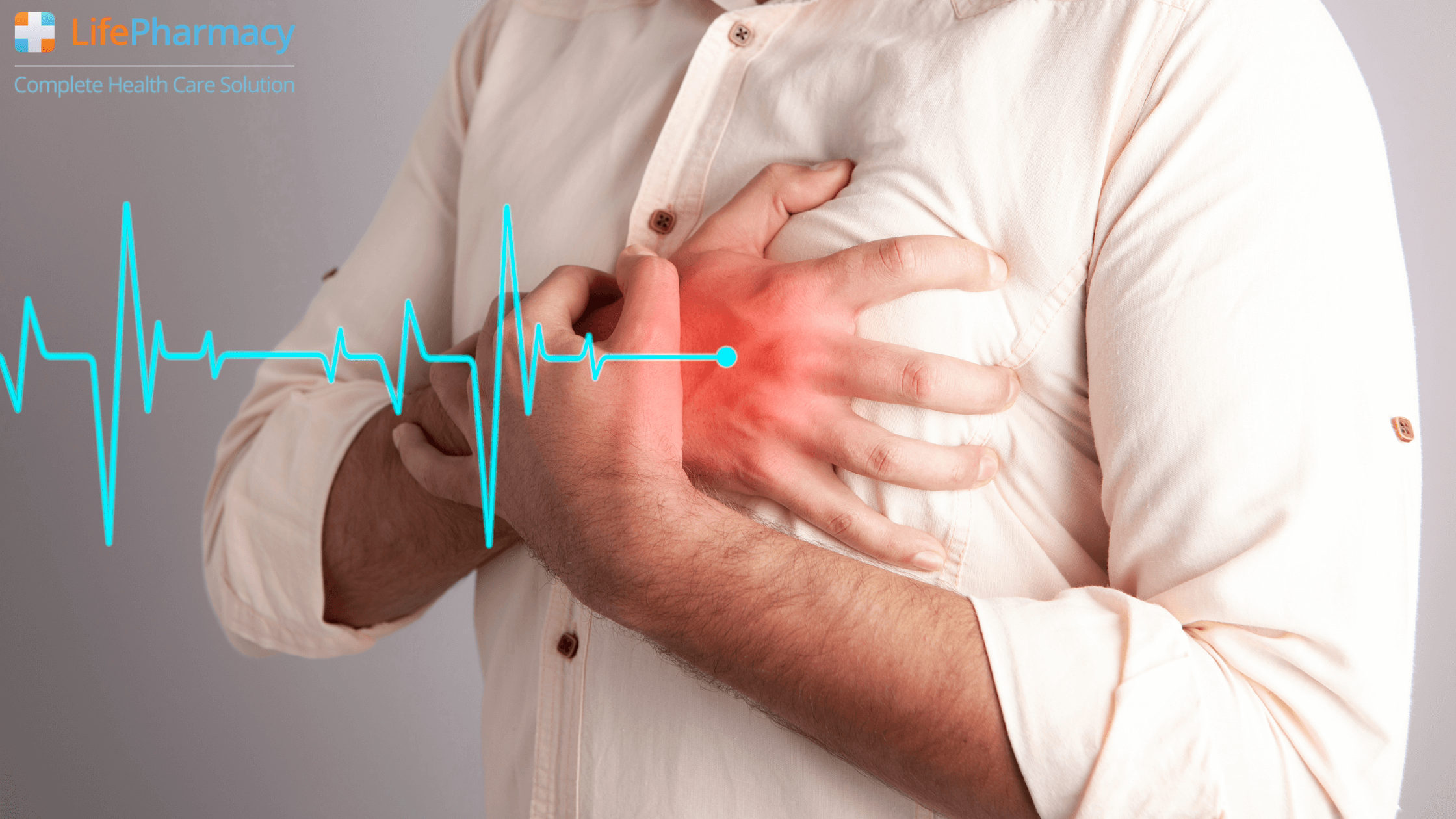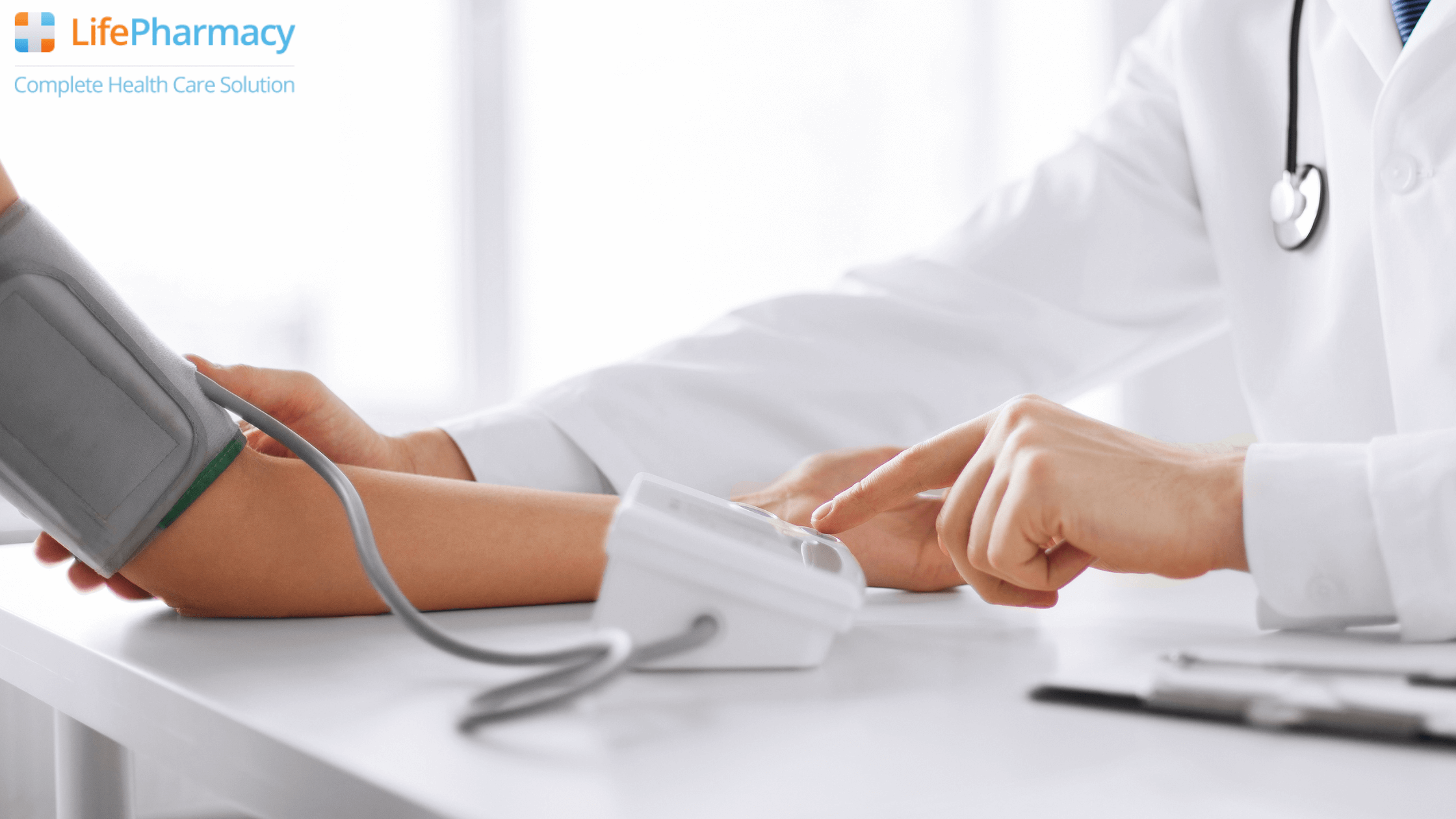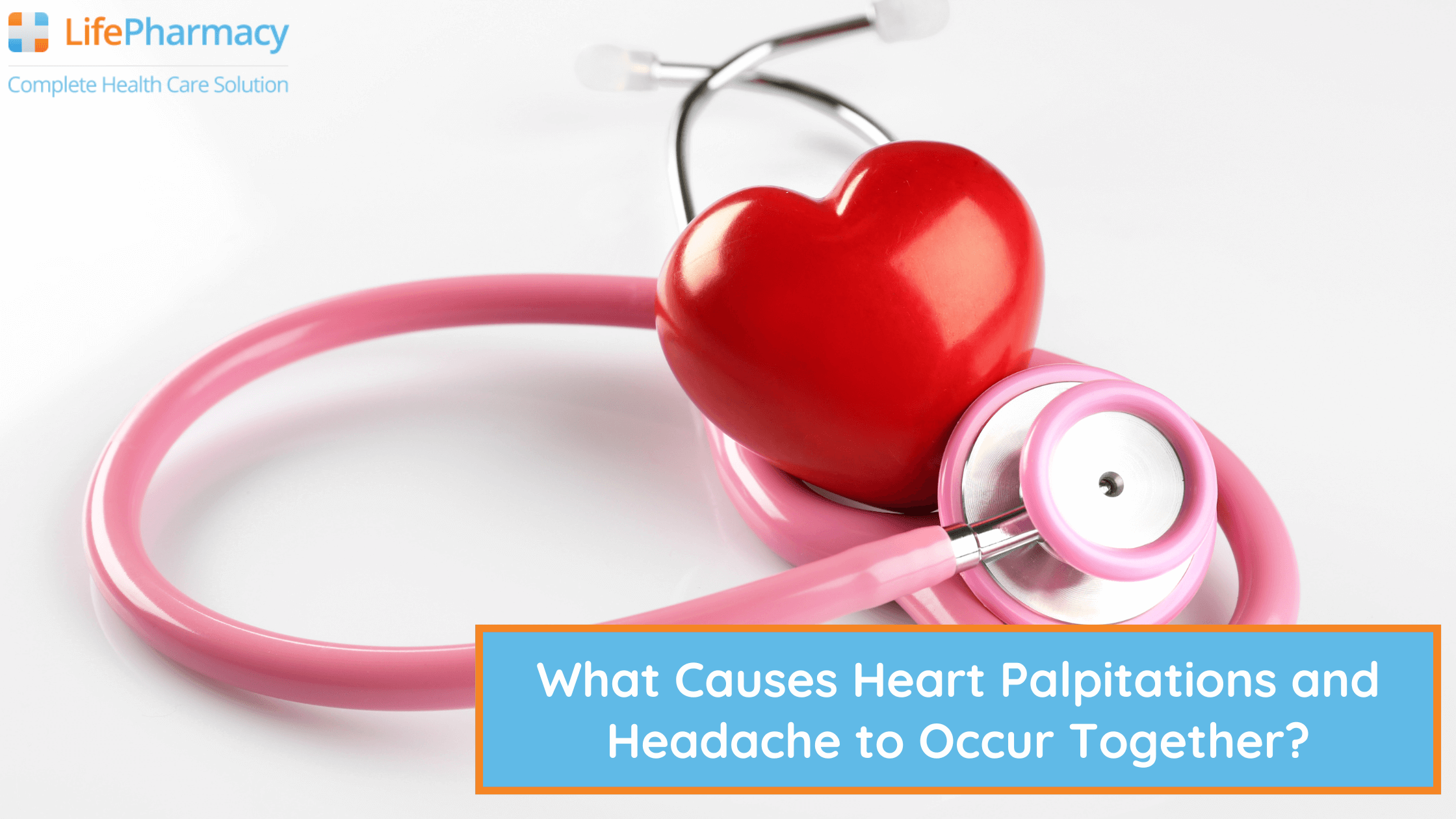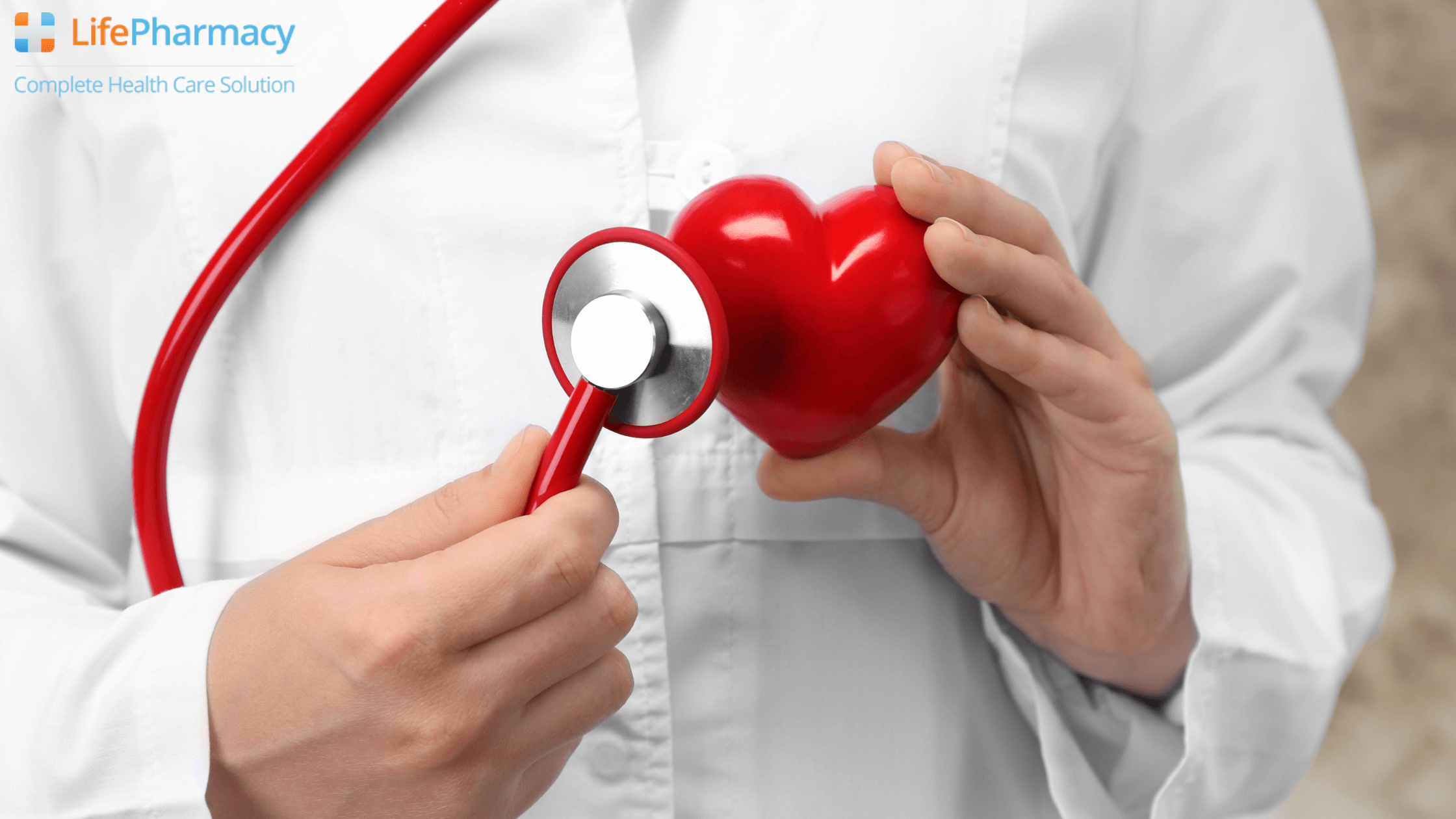Heart palpitations involve your heart pounding, fluttering, skipping, or beating differently. They are more noticeable as they draw your attention to your heartbeat. Similarly, headaches are also quite apparent, as the discomfort or aches they cause may hinder your ability to perform daily chores.
Heart palpitations and headaches don’t always occur concurrently and may not be a cause of concern. But they could signal a serious health condition, especially if you have other symptoms such as passing out, lightheadedness, shortness of breath, chest pain, or confusion, making it imperative to seek medical care immediately as they may signal some emergency.
Online chemists give you several possible reasons why you may be experiencing heart palpitations and headaches together.
Heart Palpitations and Headache Causes
Caffeine and Alcohol
Caffeine is a stimulant that may be found in some beverages (coffee, green tea, soft drinks), chocolates, supplements, and medications. Consuming caffeine regularly can cause a person to become dependent on it. Limited consumption is not considered an addiction and can in fact help to relieve headaches. Withdrawal symptoms such as headache, fatigue, decreased energy, sleepiness, depressed mood, difficulty concentrating, and nausea can occur as a person may become tolerant to it. It may also lead to anxiety, causing headaches and heart palpitations.
Excessive alcohol consumption too can cause headaches and heart racing as it can lead to dehydration. A person who has a hangover is also likely to experience headaches. The best way to manage this problem is by limiting alcohol and caffeine intake. It is best to consider alternative drinks such as water, alcohol-free beers or wine, or decaffeinated tea or coffee.
Stress
Stress is an inevitable part of our lives; excessive stress results from unavoidable situations or circumstances impinge on individuals. Routine stress is normal, but over-stress can lead to several health conditions and can be linked to your experience of heart palpitations and headaches.
Eliminating stressful situations or occurrences may not be within your reach; however, a few stress management techniques like exercising, meditation, spending quality time with friends and family, talking to someone you trust or a specialist about your problems, and indulging in activities like dance, music, etc. can help reduce symptoms.
Arrhythmia
An arrhythmia is a type of heart disease that leads to abnormal heart rhythm and is usually caused by an electrical malfunction. This disease can often lead to heart palpitations accompanied by headaches.
A person suffering from an arrhythmia may experience a changing heartbeat that can be regular or irregular. Premature ventricular contractions (PVCs) and atrial fibrillation are types of arrhythmias that cause headaches and heart racing.
- PVCs
Extra early heartbeats in the ventricles (lower heart chambers) may make you feel as if your heart is fluttering or skipping beats. In addition, excessive caffeine or tobacco consumption, menstrual cycles, or exercises can often lead to PVCs.
Read: How to maintain heart health after menopause
- Atrial fibrillation
Atrial fibrillation is an abnormality in the heart rhythm in the auricles (upper heart chambers) that causes a rapid (heart might beat more than 100 times per minute), irregular heartbeat. In addition to an abnormality in heartbeats, the patient may experience symptoms such as dizziness, fainting, fatigue, shortness of breath, and chest pain.
Conditions like heart disease, diabetes, obesity, sleep apnea, and high blood pressure can cause atrial fibrillation.
You must visit a medical practitioner who might advise medication and suggest activities or procedures like cardioversion or ablation cure arrhythmia. They may also suggest altering your lifestyle and avoiding smoking, drinking alcohol, and caffeine. Besides this, you can visit the online chemist UK to find a range of products for a healthy heart.
Anxiety and Panic Attacks

With anxiety, a common mental health condition, the person may feel excessive, uncontrolled feelings of worry and fear. Anxiety can often lead to panic attacks.
Panic attacks occur when sudden feelings of terror invade your body without warning. These episodes can interfere with your day-to-day life and occur at any time, even during sleep. During this time, the person believes the improbable, thinks that death is imminent, and is unable to control their feeling of fear.
Panic attacks cause heart palpitations and headache symptoms and can be very intense, lasting for about 10 minutes. The patient would also experience symptoms such as faintness, dizziness, numbness or tingling in the toes and fingers, chills, abdominal pain, chest pains, difficulty breathing, trembling, shaking, sweating, and hot flashes.
Treatments for panic disorders and anxiety can include an amalgamation of medications and psychotherapy. Your medical practitioner may advise you to avoid stressful situations that trigger panic attacks. They may additionally suggest focusing on breathing, stamping on the spot to help control breathing, breathing slowly, or wrapping yourself in a blanket.
Medications
Certain medications, like vasodilators, monoamine oxidase inhibitors (MAOIs), and the calcium channel blocker nifedipine, can cause side effects like headaches and heart palpitations. If you happen to experience these or any other side effects from taking medications, immediately inform your medical practitioner.
Dehydration
Water is a major component of the cells and plays an essential role in maintaining your overall health and wellbeing. When you do not drink enough water or have been suffering from some recent ailment that involves vomiting and diarrhea, it can lead to dehydration. Many times excessive or strenuous exercise and sweating may cause water loss in the body. Dehydration is a very important factor that gives rise to both headaches and heart palpitations. Additionally, symptoms of dehydration include muscle cramps, dry mouth, dry skin, feeling thirsty, dizzy or lightheaded, and tiredness.
Plenty of caffeine and alcohol-free fluids must replenish the water, salts, and sugars lost in the body. UK online pharmacy have a range of oral rehydration products that can help to restore the loss of fluids from your body. However, if the cause of dehydration is uncertain, it is best to seek medical attention at the earliest. Your doctor may advise intravenous fluids if the symptoms are too severe.
Anemia
Anemia is a common blood disorder in which the body lacks functioning red blood cells, leading to decreased oxygen delivered to the cells. It usually occurs when your diet is deficient in iron or the body cannot absorb adequate proportions of iron.
Women may become anemic during menstruation or pregnancy. Sometimes significant blood loss following a surgery or injury can also cause anemia. Chronic diseases such as an infection, liver or kidney disease, cancer, or autoimmune disease may also lead to this disease.
Heart palpitations and headaches may be a sign of anemia. Anemia can make you feel tired, weak, look pale, and have cold hands and feet. It can also accompany chest pain, dizziness, and shortness of breath.
If you are anemic due to blood loss or an unhealthy diet, your doctor recommends you switch to a diet rich in iron. You may also purchase iron supplements from an online pharmacy. In severe cases, your medical practitioner may treat the underlying condition with medications or blood transfusions.
Migraine and headaches

Headaches are of several types and occur due to several reasons. Among these headaches caused by migraine are more intense, may recur, and last for hours or days. Migraine with aura changes your vision and other senses, and patients with this type of headache are more likely to develop atrial fibrillation.
A cluster headache is usually one-sided, very painful, and appears out of nowhere, lasting for a long time.
The headache that is caused due to stress is characterized as a tension headache. Your head may feel like your head is being squeezed during a tension headache.
These headaches tend to last daily for weeks or months at a time. During a headache episode, you may find yourself moving or rocking back and forth, which could increase your heart rate. You can use our pain relief meds to reduce your agony during a headache.
Blood pressure and headaches

The force of the blood pushing against the arteries' walls is called blood pressure.
- High blood pressure
When a blood pressure reading is above 140/90 mmHg or higher, a person has high blood pressure or hypertension. If you are on blood pressure medication, you need to use a blood pressure monitor on a regular basis to keep a check on the values. High blood pressure can also cause a fast heartbeat and headaches. If you believe that high blood pressure is the cause of your headache, seek immediate medical attention to avoid any serious damage. Your doctor may choose to give intravenous medications to lower your high blood pressure.
- Low blood pressure
A person having a blood pressure reading below 90/60 mmHg is said to have low blood pressure or hypotension. Low blood pressure is often asymptomatic; however, some people may experience headaches and heart palpitations, alongside other symptoms like fatigue, lightheadedness, confusion, blurry vision, back pain, and nausea.
Low blood pressure can be cured by changing a person’s diet and certain medications that can be availed from online pharmacists. Wearing compression stockings may help improve blood circulation and increase blood pressure.
Food Allergies
Food allergies can also trigger headaches and heart palpitation episodes. However, you may get a headache from a number of foods, but it may now always be the same foods. People who drink caffeine or alcohol with their meals may experience headaches and heart palpitations.
A heavy and spicy meal can cause heart palpitations and may also trigger heartburn after eating. Read further to know about the causes, symptoms and treatment for heartburn.
Many people who experience headaches after eating say the common culprits include dairy, excessive amounts of salt, or certain foods with tyramine.
Pheochromocytoma
When a benign tumor forms in the adrenal glands which are located above the kidneys, it releases hormones that cause headaches and heart palpitations symptoms. It is a rare condition and is referred to as Pheochromocytoma.
Conclusion
While it is clear that headaches and heart palpitations may occur due to several reasons, one must not prolong visiting a doctor to know the root cause. Online pharmacists have a range of medications that your medics might prescribe. In addition to the medication, take charge of your health, exercise regularly, follow a regular diet plan and educate yourself about signs of diseases. We wish you a healthy life!







